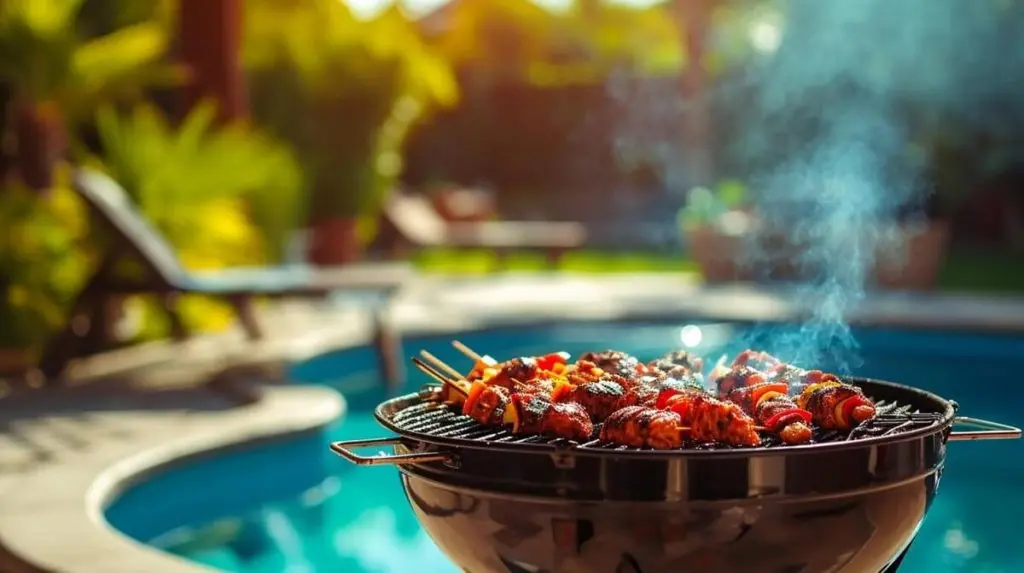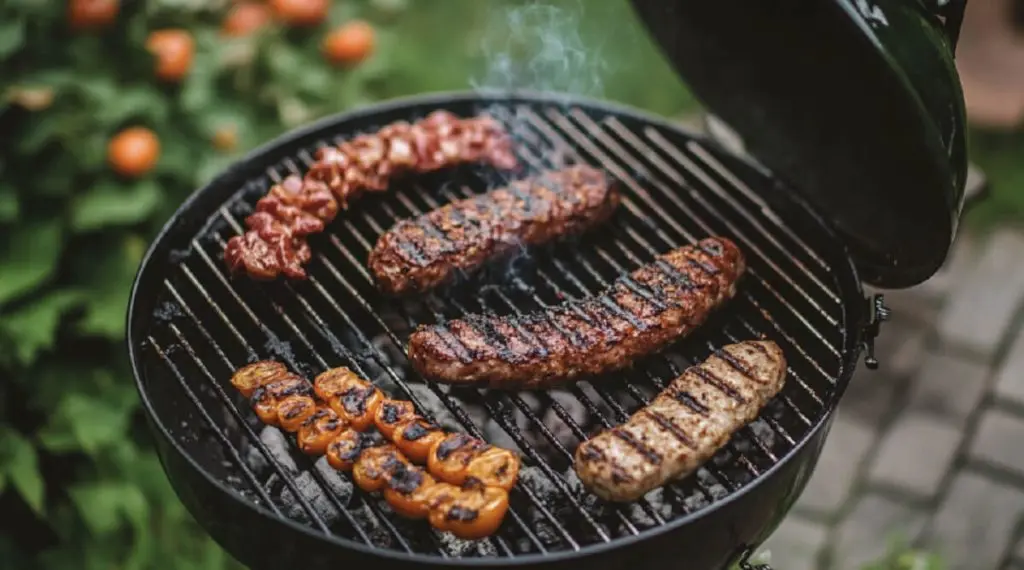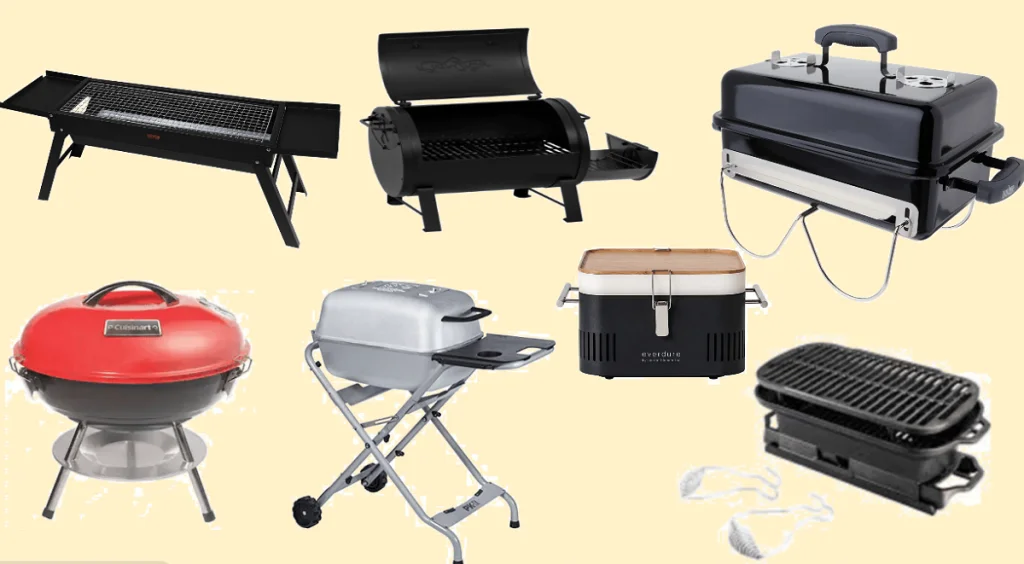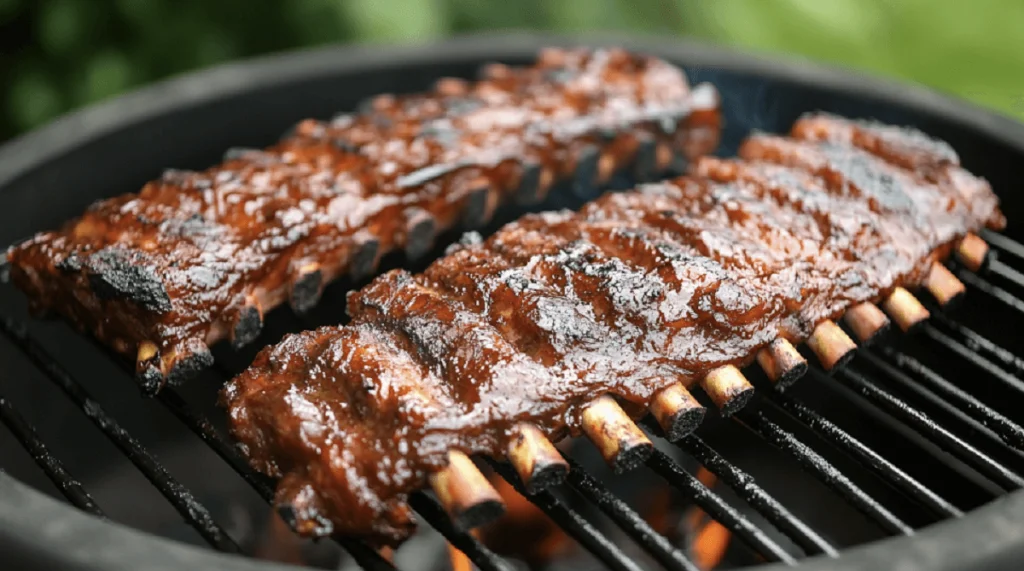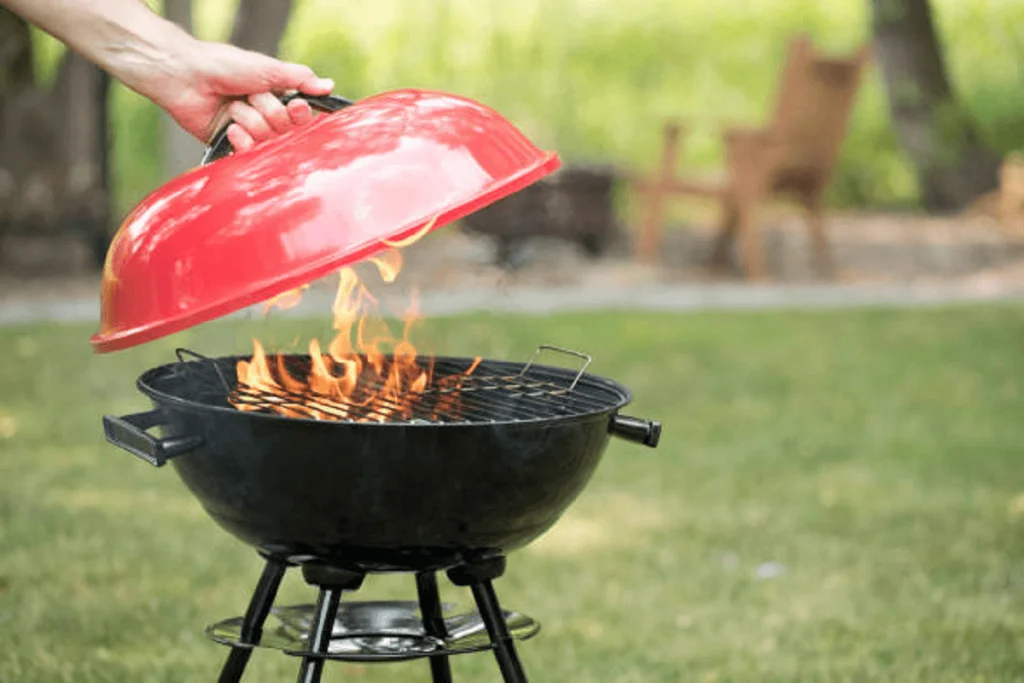The debate between gas & charcoal grills has been ongoing for years. Yes, both grills have their own benefits, but which of them is more appropriate for the kind of cooking that you prefer? It could be confusing when deciding on whether to barbecue with charcoal or go for conventional gaseous grilling.
In this guide, we will delve into more details in terms of both charcoal and gas grills. We will also guide you on which of these grills is suitable for use depending on its features, performance, and costs.
Do you want to have the best grilling experience? So, without much further ado, let us look at the fundamentals of charcoal grill in detail. But if you’re on the lookout for a good one, the VEVOR Charcoal Grill is a great choice!
Table of contents
What Are Charcoal Grills?
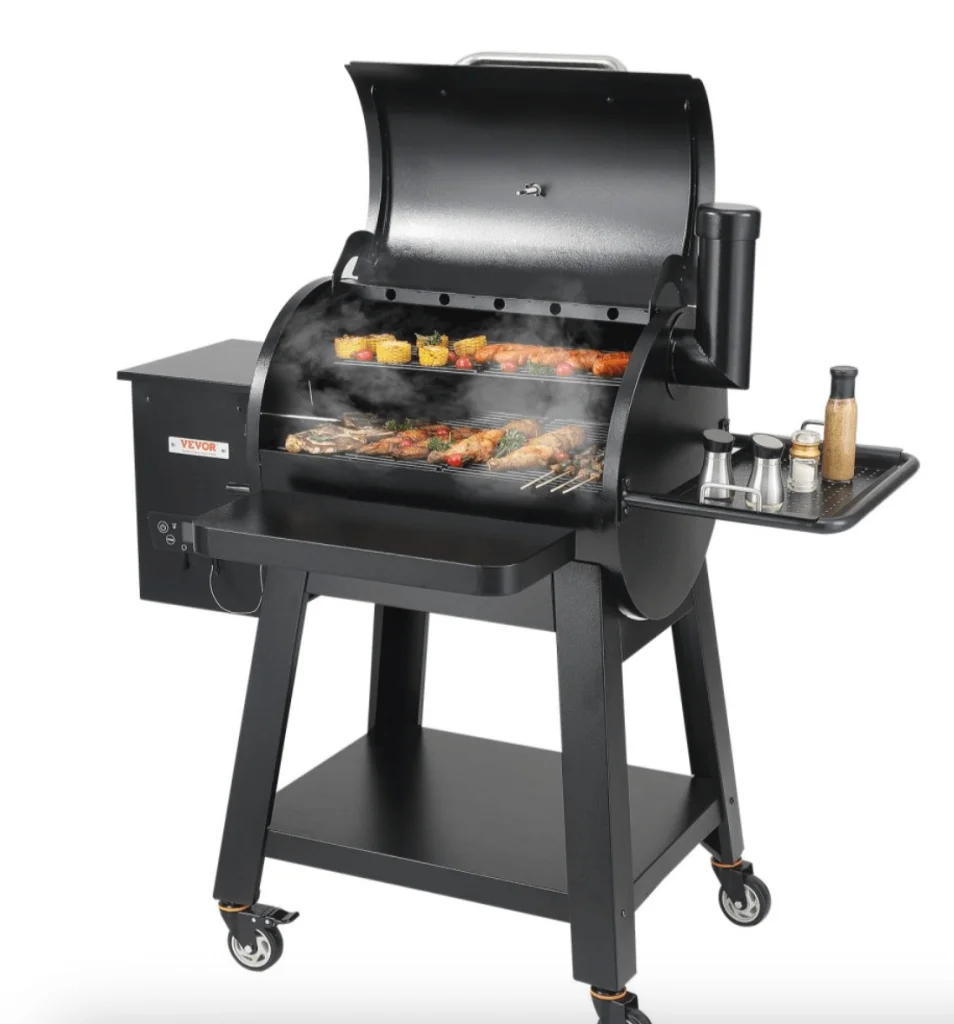
It is an outdoor cooking appliance. It employs charcoal as the principal cooking source. To start it, you ignite the charcoal. Then, you wait for it to turn red-hot, and when it becomes white-hot, it is ready for use. This results in very high heat and a smoky aroma and is ideal for roasting meats and other meals such as vegetables.
It is because the coals provide your meal with this authentic charcoal taste, a taste that is hard to come by using other grills.
Charcoal grills are available in different sizes and types of models. Some are compact and can be easily carried anywhere, such as when camping or having a picnic. Some are small, portable, and convenient, such as upright grills, while there are massive models, like barrel-style grills, ideal for backyard cooking.
Many charcoal grill models also have adjustable vents and the purpose of these is to allow the user to control the flow of air. This is important because it allows you to control the temperature at which you cook the food.
Advantages of Using a Charcoal Grill:
- Smoky Flavor: Charcoal provides food with that barbeque taste that many people enjoy. Another thing that makes it different from other grills is that the smoke enhances flavor.
- High Heat: Charcoal has very high heat production which is best suited for searing steaks and getting a great crispy crust on all kinds of meats.
- Versatile Cooking: With a charcoal grill, you are in a position to create a two-zone fire. This can include placing the food on direct coals to cook or using indirect heat for long cooking.
- Portable: Most charcoal grills are portable and can easily be carried from one place to another, especially to different/barbeque locations.
The VEVOR Charcoal Grill has a generous cooking area besides featuring a relatively low heat output level, making it a perfect grill for new and professional users. It is definitely advisable if you like that real barbeque smoky taste.
Recommended For Your Project
What Are Gas Grills?
A gas grill is one that is powered by propane or natural gas. Using a knob, you can operate the grill then gas it up for cooking and control the heat within seconds. Gas grills are easy to use and convenient which is why they are commonly used for regular grilling occasions.
Some of the main common characteristics of gas grills include several burners that enable you to provide separate heat areas. This makes the preparation of different dishes at the same time possible.
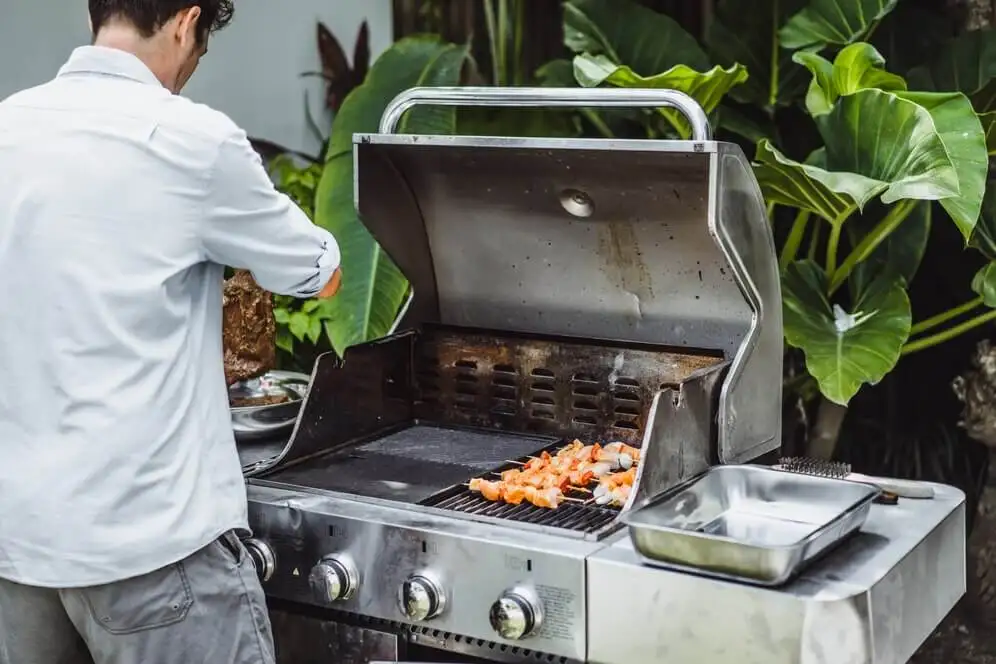
Benefits of Using a Gas Grill
- Quick Startup: Compared to charcoal ones, you do not have to wait for the grill to heat up as the gas ones get hot with the push of a button.
- Temperature Control: The knobs that are used in the cooktop can be easily adjusted allowing the right temperature to be set.
- Less Mess: Gas grills give out less ash and debris which prevents the surfaces from being stained and makes cleaning faster.
- Consistent Heat: Especially important for foods that have to cook for a long time at a consistent temperature, you can’t beat a gas grill for its heat distribution.
Overall, if you want a grill that would cook your food as soon as possible, a type of gas grill should suffice your needs. But that is where most people lose the fantastic tastes that charcoal grilling offers to food products.
Gas grill vs Charcoal grill: Key Differences
So, now that you understand the fundamental difference between two types of grills, it’s time to move further to a more detailed comparison.
Flavor and Food Quality
Charcoal Grills:
- Charcoal grills are often associated with the ability to give the food you prepare a special taste of smoke.
- While the charcoal is burning, smoke from the burning charcoal penetrates into the meat for that barbeque flavor.
- Charcoal provides a tender texture and full, dense taste to the grilled food if you are a fan of it.
Gas Grills:
- Unlike charcoal grills, gas grills do not give a smoky flavor.
- Although they produce steady heat, the food rarely has the smoked or barbequed taste that many men and women love about the grill.
- A few accessory gas grills have options of employing a wood chips system for essence, but this is not the same as a genuine charcoal grill smoke.
If flavor is your priority when comparing charcoal grill vs gas grill, charcoal grills win. They offer that unbeatable smoky taste, whereas gas grills provide a cleaner but less flavorful grilling experience.
Temperature Control and Cooking Time
Charcoal Grills:
- Charcoal is unfortunately slower to heat and cool, which may feel like a drag if you are not patient enough.
- It becomes difficult to regulate the heat, except through experience, one gets to regulate the heat by letting some coals fall, or opening the vents.
- Once ignited, they provide a good glow for browning and slow cooking on grates or grids.
Gas Grills:
- Compared to other types of grills, gas grills are convenient since they provide heat instantly. This can be from cold to cooking in a very short time.
- It is easy to regulate heat since a knob is used to control the heat levels either up or down.
- The gas grill is suitable if you require quick and variable temperatures when grilling.
Of all the grills, the gas grills are the most convenient and take the shortest time to cook food. However, charcoal grills are more interactive for those who are willing to devote some time to ensure that the grilling conditions are optimal.
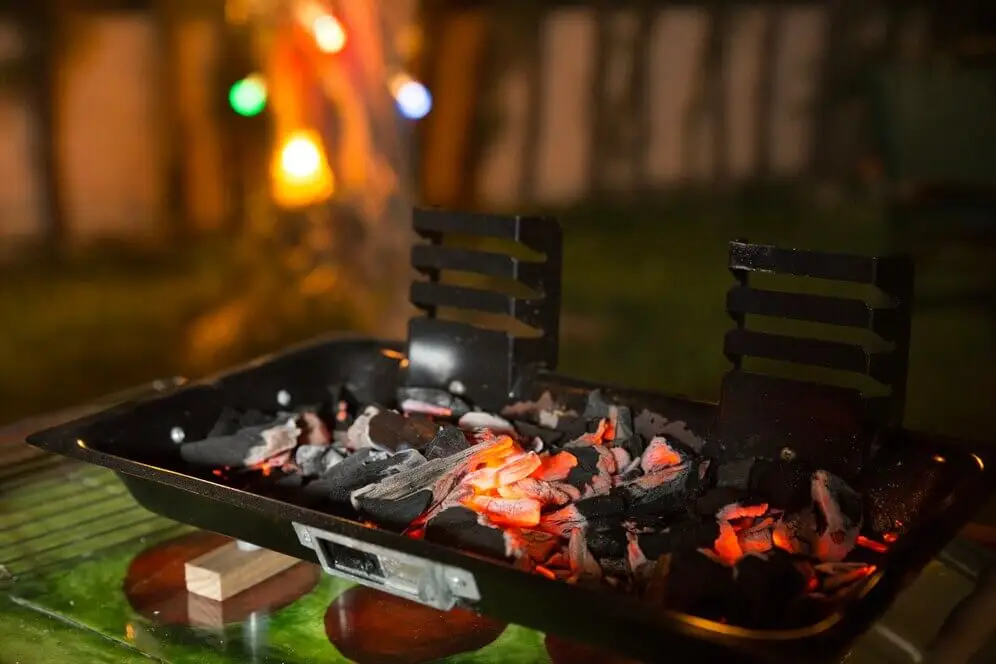
Ease of Use and Maintenance
Charcoal Grills:
- Charcoal grills are a bit time-consuming to get ready. To do this, you need to ignite the charcoal and ensure it gets to the right level of readiness.
- Cleaning is also complicated since charcoal produces ash and debris.
- Charcoal grills are more portable and easier to store, especially if you opt for a smaller model like the VEVOR Charcoal Grill.
Gas Grills:
- Gas grills are much simpler to use. Just turn a knob and then one is set to cook.
- These are always easier to clean up as there are no ashes to scoop out or turn into ash.
- Gas grills are found to be big and less mobile than charcoal grills.
Convenience and efficient cleaning, and that’s where the gas grills are superior in comparison with charcoal ones. However, if you find the process enjoyable and you do not mind cleaning up, then charcoal grills are quite fulfilling.
Cost Implications
Charcoal Grills:
- Most charcoal grills are cheaper than the initial cost.
- However, charcoal will prove a bit expensive in the long run especially if you are an enthusiastic griller.
- Daily operating cost is relatively low apart from the cost of quality charcoal to use in cooking.
Gas Grills:
- The initial costs of a gas grill are usually a little higher as compared to other types of grill.
- The average cost of propane or natural gas is cheaper compared to charcoal if one is used frequently for grilling.
- Normal services such as the replacement of its gas tanks or burners add to the total cost.
Charcoal grills are cheaper for infrequent grillers, while gas grills are cheaper than charcoal grills for frequent grillers.
Safety and Health Considerations
Charcoal Grills:
- Charcoal also produces more smoke than gas, which can be dangerous to one’s health if one breathes it in frequently.
- Hot coals should be handled carefully so as not to cause burns or any accidental fire mishaps.
Gas Grills:
- Gas grills are relatively safer as they provide better control of flames as compared to charcoal ones.
- They generate considerably less smoke compared to their traditional counterparts, making them both healthier for humans and the surrounding ecosystem.
Gas grills are more convenient and are much healthier than Charcoal grills especially if they are going to be used frequently. They are relatively more dangerous compared to gas grills, although they can also be safe when used carefully.
Environmental Impact
Charcoal Grills:
- Charcoal grills have a wider carbon footprint than gas grills due to the amount of smoke and carbon dioxide produced.
- Another natural resource affected by the production of charcoal is the environment in which the charcoal may be produced and sourced.
Gas Grills:
- Another benefit of gas grills is that they pollute more and emit less smoke and other toxic by-products.
- Natural gas or propane is used instead of charcoal, and this makes the use of gas grills as environmentally friendly.
If you are an environmental lover, then gas grills should be preferred over charcoal ones. It is less dangerous to the environment, and the rate of emissions it releases is comparatively low.
Which Grill is Right for You?
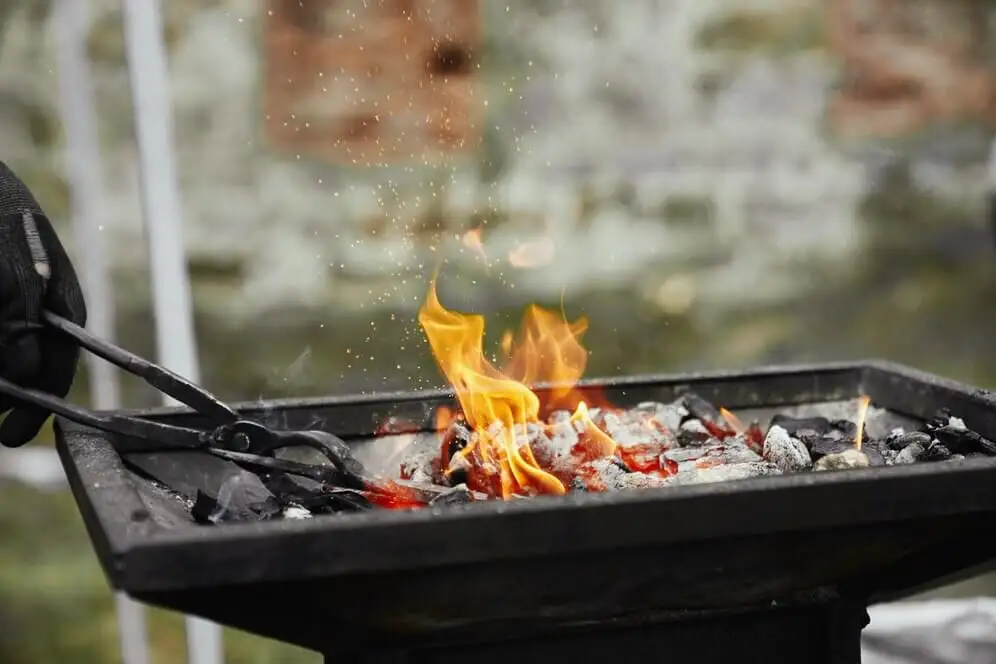
When deciding between a gas grill and charcoal grill, think about what matters most to you. Here are a few factors to consider:
- Taste: If the idea of grilling brings the thought of smoky barbecue and classic backyard parties to mind, charcoal is your friend. Charcoal produces a richer and deeper taste to your foods unlike what the gas grill is able to produce.
- Convenience: For those who are targeting fast and simple grilling, then it will be profitable to opt for the gas ones. They heat up much quicker than the ‘normal’, and it is easy to regulate them. Having no manual work in handling coals such as waiting for them to heat, or cleanup of the ash after they have cooled down.
- Budget: They are often cheaper in initial purchase, and they need less upkeep in the long run. But again, regular user gas grills are cheaper to use than the normal electric grills. It is usually cheaper to put gas in than to continuously purchase charcoal.
- Grilling Frequency: Do you frequently use the grill? Gas grills are best when used often, but for charcoal lovers, the taste gained from using charcoal grills is incomparable. They distribute heat evenly and are easier to maintain, factors that make them suitable for daily usage.
- Health and Environment: Gas grills are environmentally friendlier and safer than traditional charcoal grilling. These vehicles emit less smoke and fewer toxic glasses thus are healthier for you and the environment as well.
If you’re someone who enjoys traditional BBQ flavors, the VEVOR Charcoal Grill is a great option. It’s easy to use, allows you to control the temperature, and gives you that classic smoky taste that true BBQ lovers crave.
Conclusion: Your Path to Perfect Grilling
The right grill depends on your personal preferences, lifestyle, and grilling habits. Both gas and charcoal grills have their benefits. Charcoal grills offer richer flavors. Gas grills provide convenience and easy temperature control.
No matter which grill you choose – charcoal grill or gas grill, the VEVOR Charcoal Grill stands out as an excellent option for those who love the authentic taste of BBQ. It combines traditional charcoal grilling with modern features like adjustable vents and a large cooking surface. Ready to up your grilling game? Explore more about VEVOR charcoal grills and find the perfect one to suit your needs. Happy grilling!

